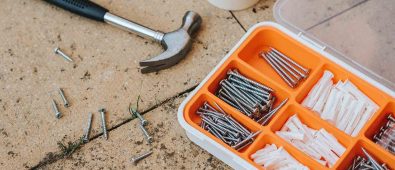What is it like to be a successful economics student? What are the qualities you need to succeed at university? To enjoy your studies and then to find a job after graduation? These are difficult questions, there is no doubt. And the answers might not be immediately obvious.
To ease your mind, economic homework help professionals have compiled a list with the top 12 traits that, if they are possessed, will ensure that every student has the best possible university experience.

Many are asking, “What if I don’t have them?” You don’t have to be worried, much can be achieved with hard work and determination. Let’s get started.
1. Intellectually curious
It is essential that you are interested and involved in your subject to be a successful student of economics or any other field. The other characteristics depend on your concern for your subject and the studies you are doing.
While everyone may find some topics more fascinating than others, it is important to be open to learning something new about whatever topic you are studying.
It’s a great way to keep your curiosity alive. You can observe others doing well in their chosen field and ask questions about everything and anything you don’t know. Asking experts questions is a great way to find out how something works.
They are experts! Asking questions is difficult or impossible if you don’t have the time. There are many other ways to find out: books, journals, and, of course, Wikipedia. Praise be!
Also Read: Top 10 Student Cities According To Students in 2020
2. Numeracy
This is an obvious fact: Numeracy is a crucial skill for economists. Any economist. You will need to be able to handle large numbers and work with mathematical principles.
Many economists begin their studies or work in economics by taking math classes. If you feel unsure, you should seriously consider this option. What are you waiting for?
3. Social sciences knowledge
There are many commonalities between economics and other social sciences like history, psychology, sociology, and history. It is therefore important to have a good understanding of the facts and methods of these subjects.
Understanding economics and other social sciences have become more interconnected in recent years. This makes it essential to stay current. You will be able to speak with others about related subjects in your life.
4. Good at understanding complex systems
It is obvious that economics is complex and looks at complex systems. You will need to be able combine information from multiple sources and fields to excel in complex systems.
This takes time, effort, patience, and patience. It involves reading a lot to keep up with new developments in these systems. This is a crucial skill that requires the ability to read through complex scientific texts.
5. Be self-driven
At university, unlike school, you will be expected to manage your workload, attendance, engagement, and other aspects. You will notice a drop in grades or even failure if you miss classes or take assessments. It is important to be motivated in order to prevent this.
Students who excel in school will be motivated to get involved in the class and do their best in assignments. To be the best, outstanding students will go above and beyond what is required. This should be our goal. We don’t know everything, but we should try. You can do it!
Being self-driven is all about commitment. It is easy to focus for a few minutes on something that interests you. It’s much more difficult to stay motivated and determined for long periods of time when you don’t love what you are doing, reading, or writing about.
This is something you will face, and we are sure it. You can keep your stress to a minimum by choosing the right path.
6. Time management is key
A budding economist must also be able to organize their time and plan. Students who are successful plan their semesters and weeks well in advance. This will ensure that they can attend all classes and have enough time to research and complete assessments.
It is equally important to allow yourself time for hobbies, socializing, or just general enjoyment. Netflix doesn’t keep an eye on itself, you know. It’s vital to keep up with your coursework, classes, and assignments.
However, it is important to take time to relax and see your friends if you want to have a healthy study/play life balance. This is even more important as students are experiencing a decline in their mental health.
Take some time to unwind. You can start by getting a planner to help you manage your time. It really does make a difference!
7. Admitting you don’t understand
A quality that is often overlooked is the ability not to deny you don’t know something. This is a huge skill, especially when it comes to economics. Even though it may be embarrassing to admit your ignorance, this is the only way you can learn.
You are allowed to admit that you don’t know or understand something. This will allow teachers and other students around you to help you better understand the topic. It will be a win-win situation for you in the long term.
Take the plunge! This goes hand in hand with intellectual curiosity. You won’t be able to admit that you don’t know anything if you fear embarrassment or shame. This will prevent you from utilizing your natural curiosity. It’s curiosity that leads to creativity, innovation, and originality. It is important.
8. Original and creative
A great student is one who can come up with innovative ideas and new ways to think about a problem. This is especially true in economics, where innovative thinking is the norm. Don’t be afraid of expressing your opinion on a topic, or argument, even though it may not agree with others. Teachers and students will appreciate your opinion as long as they can support it.
There are many things you can do that will improve your creativity. As we will discuss later, one of the things you can do to improve your creativity is to read widely and learn a variety of skills. You will be able to see a problem from a different perspective and find innovative solutions.
The more tools you have, the better. Collaboration is also possible: working alongside someone with a different set of strengths than you will force your mind to see the world differently. Together, you can create an idea that you wouldn’t have if you were working together.
There are many other options. You can also be more creative by traveling to other countries and experiencing different cultures. You can train your creativity by taking short breaks from work to create something, such as a doodle or a free-write, or a poem.
It is always a good idea to connect with others who are naturally creative. You can improve your skills by being around people who are skilled in that skill.
9. Strong reading, writing, and analysis skills
There are certain skills you will need no matter what subject you choose. At every stage of your academic career, you will need to be able to comprehend and interpret information, write clearly and engage your audience, and critically analyze the information.
It’s just as important to read books that aren’t directly related to your course. Newspapers, novels, and other non-fiction books are all essential. Not only is this fun, but it also helps you to broaden your knowledge beyond your discipline.
It’s crucial to ensure that this doesn’t interrupt your university work. This is about thinking broad and seeing the larger picture. You can only do this if you read lots and change what you read.
10. Communication skills
Communication skills are another important skill that students often overlook. Communication skills are essential for showing your understanding of the material to lay and expert audiences.
To get the most out of your studies, you should practice presenting orally, using slides, and participating in debates.
11. Time Management
Sometimes, you will need to perform under pressure. This is especially true for written exams. You will be able to perform at your best when you can keep calm and not panic. This is something that comes with practice. You will feel more at ease the more you take exams.
ConferenceMonkey, our sister website, has published an Insight about giving a conference presentation. It includes a section on handling nerves during presentations. For more information about performing under pressure, check it out.
Also Read: 8 Smart and Clever ways to save money during college life
12. Understanding other perspectives
One last thing, you might not know that you need the ability to understand and listen to other people. Academic success does not just require you to be able and willing to share your views.
It also requires that you are able to engage with others who have different perspectives. You’ll become a better student and encourage others by learning to listen, to argue constructively, and not to be defensive about your ideas.
When trying to understand another person’s point of view, there are many things you need to consider. Most people speak in indirect ways. This means that it is important to be able to interpret the words of others while also listening to their opinions. Understanding is also possible through body language and non-vocal communication. It is essential to read people.
After all, disagreement doesn’t mean you have to agree. In fact, the university is about challenging views and being challenged. It is important to be compassionate and respectful of others, regardless of their perspective. This is a sign of maturity and a key quality for being an economics student.




